
Are You...
Making Mealtimes A Battleground?
A Parent's Guide to Healthy Eating
Is your child a picky eater?
Or just trying to stay alive?
Modern family life is robbing children of the chance to learn safely about food, while presenting them with an unprecedented range of foods to learn about.
Meanwhile, parents are under increasing pressure to get their children eating a balanced diet from an early age.
Throughout human evolution learning about food happened so naturally that parents didn't need to think about it.
Now we do.

At a certain age children may be genetically programmed to reject foods they are not sure are safe.
Pushing young children to try things against their instincts, not only risks making mealtimes a battleground, it sets up potentially significant long term consequences.
Luckily, children don't need to try a food to learn about it, they can learn most of what they need simply by watching us eating.
As parents, we can quickly
diffuse the battles and rebuild mutual respect, while working with our children to gradually
develop their own healthy relationship to food.
To do so, we need to swap sides, help build their defences and provide plentiful, safe learning opportunities.
Opportunities that don't involve them putting food in their own mouths, until they say they are ready to do so.
We Seem To Have Forgotten Just How Risky Eating Can Be.
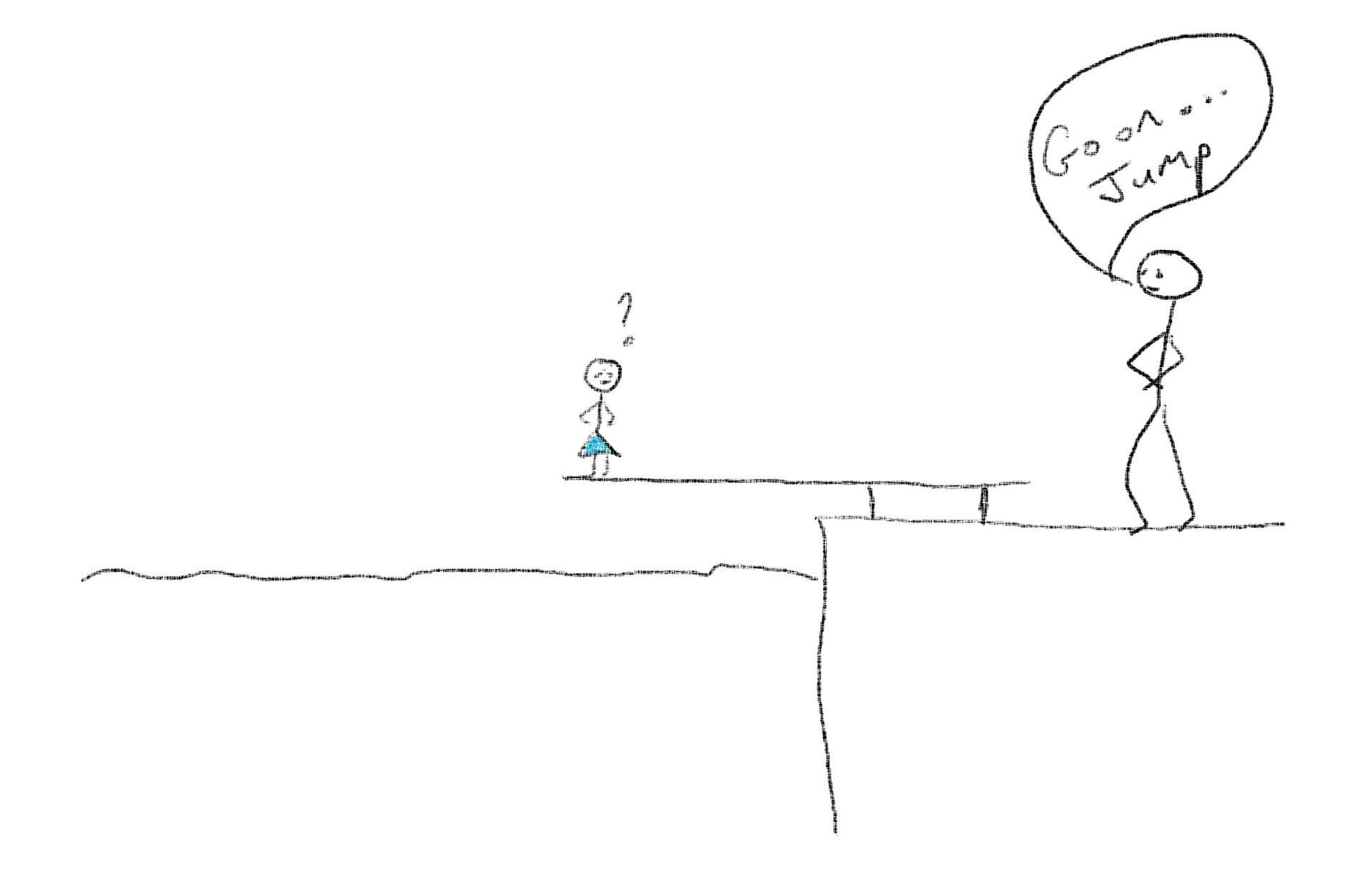
For most of human evolution food was foraged from nature, not purchased, neatly labelled and packaged, from the local supermarket.
Our hunter-gatherer ancestors would no more have told their toddlers to 'go on, just try it' than we would tell ours to jump in the deep end.
I am not a big fan of history, but there are times when even I accept it is helpful to look back and learn from our past.
It was not so very long ago that having an instinct to avoid poisoning yourself was rather more important than "eating a rainbow".
Putting anything in our stomachs that we are not completely sure about is an extremely risky thing to do.
Could it be that, at a certain age, our children are genetically programmed to reject foods they are not completely sure are safe?
Understanding what might be going on from our children's perspective can significantly help reduce our own anxieties and suppress our desire to step in and control their eating for them.
And, That Learning Should Ideally Start Long Before The Need To Actually Try Something.
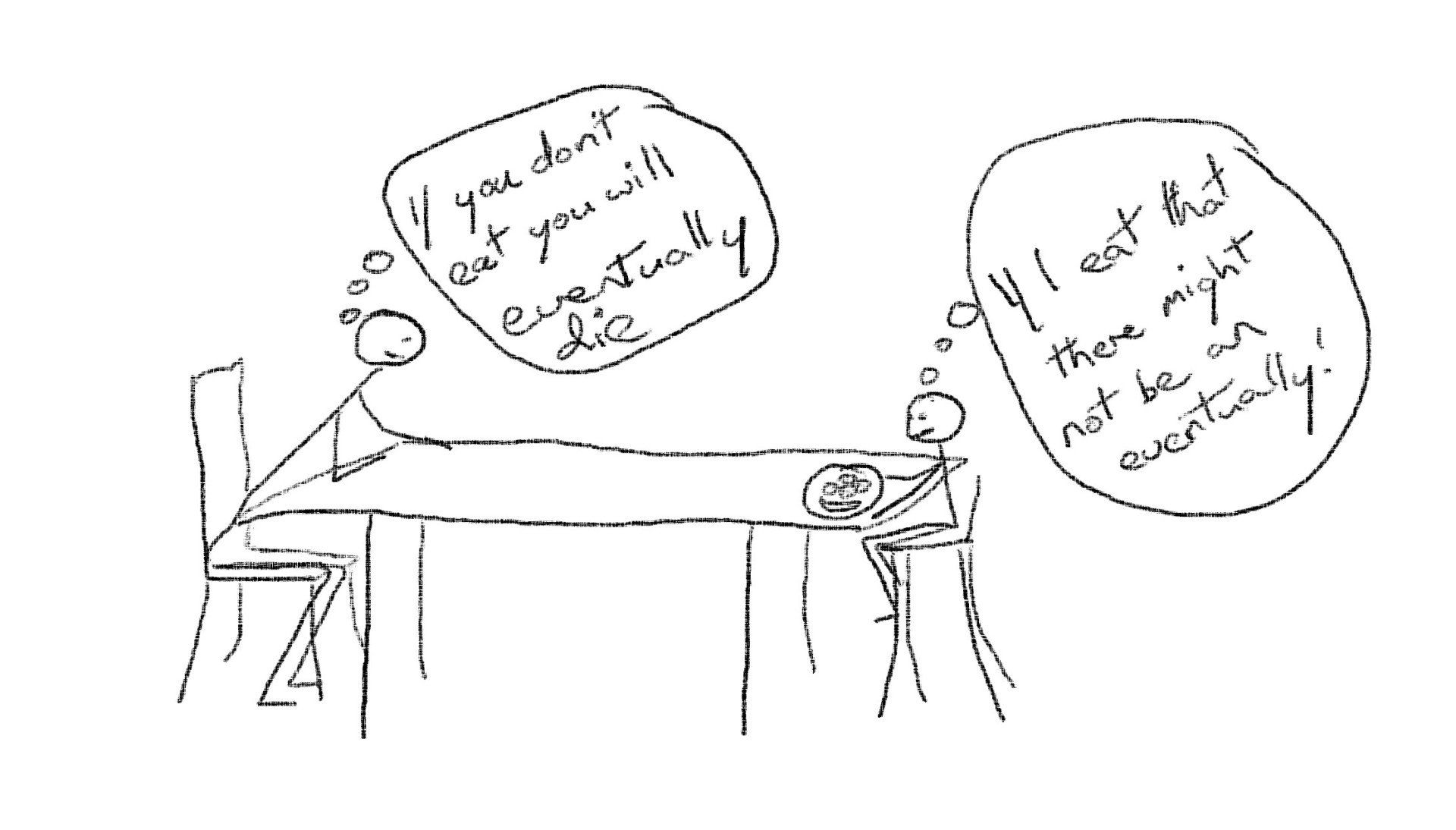
Survival experts would tell us that trying something is one of the last steps to learning about a potential new food, not the first.
Given the chance, children can learn to feel safe with a new food.... without needing to put it in their mouths.
Most parents will know how it feels to have a sullen looking child sat at the table stubbornly refusing to try that delicious tasty morsel we've lovingly prepared and put on their plate.
"Don't like it." They might say, or just push it away.
And, whether it's in our heads, or out loud, we're screaming...
"But how do you know if you don't even try it!!"
We might have heard that you have to try something new 10 times or more before you like it, so we feel determined that they should put at least one small piece in their mouths.
How else can they possibly learn?
Well, survival experts would tell us that actually putting food in our mouths and swallowing it is one of the last steps in learning about a potential new food, not the first.
So, just how do young children learn?
Now, Modern Family Life Has Robbed Children Of The Learning Opportunities That Used To Happen By Default.
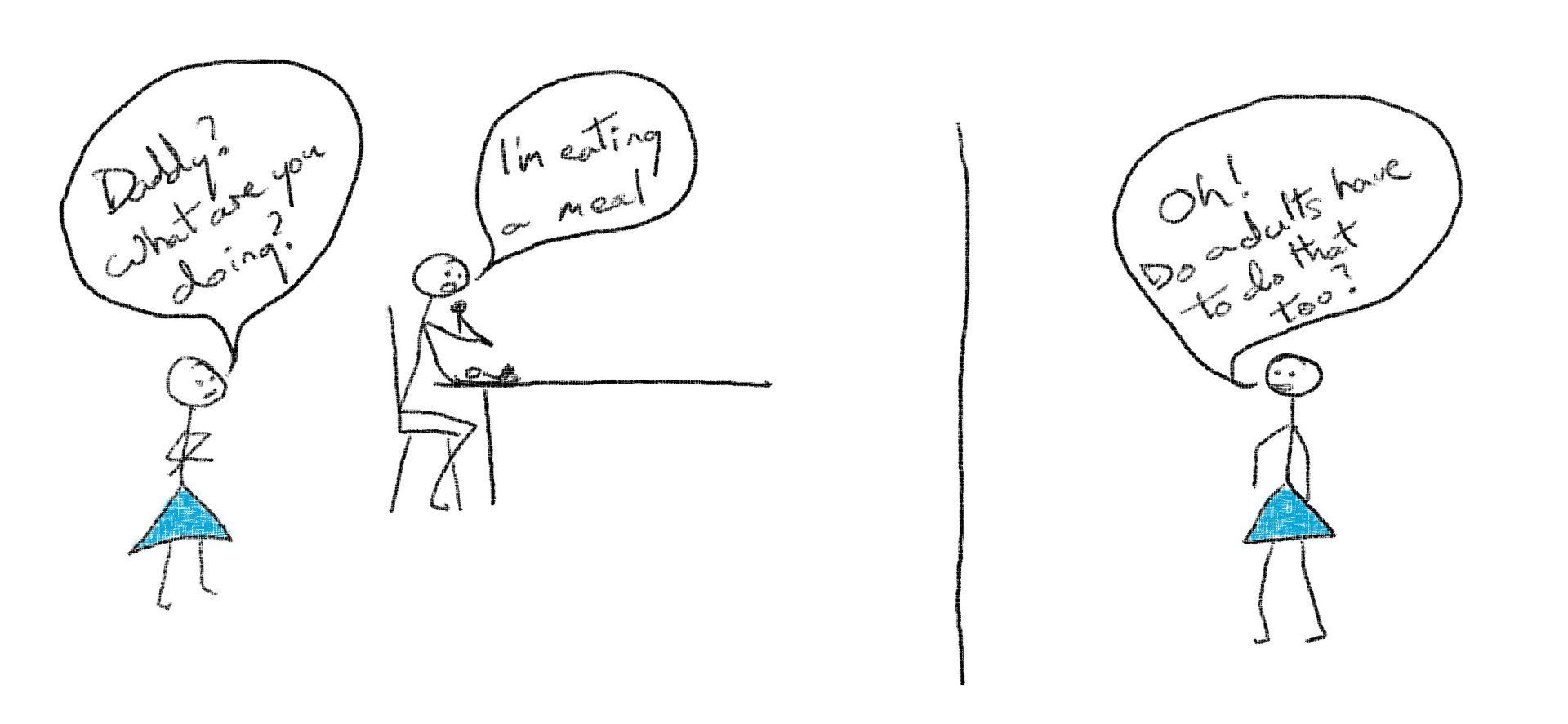
Children ideally need to learn by observing others and being involved with food long before they try something for themselves.
Children used to be involved in all aspects of food production, now even family mealtimes are a thing of the past.
Only a generation or so ago family mealtimes were still the norm.
Babies would have been weened with food from the family table.
Young children would have seen the same foods being eaten over and over again.
Now, perhaps for the first time in human evolution, children frequently eat alone, or at best with other children.
That is to say nothing of no longer being involved in the hunting, gathering, butchering, farming or other aspects of food preparation and production.
If we accept that young children learn about food through their hands and eyes and observing others, long before putting it in their mouths, is it any wonder they now stick so firmly to the few foods they have learnt are safe?
Just At A Time When There Is An Explosion Of Food Available From All Over The World.
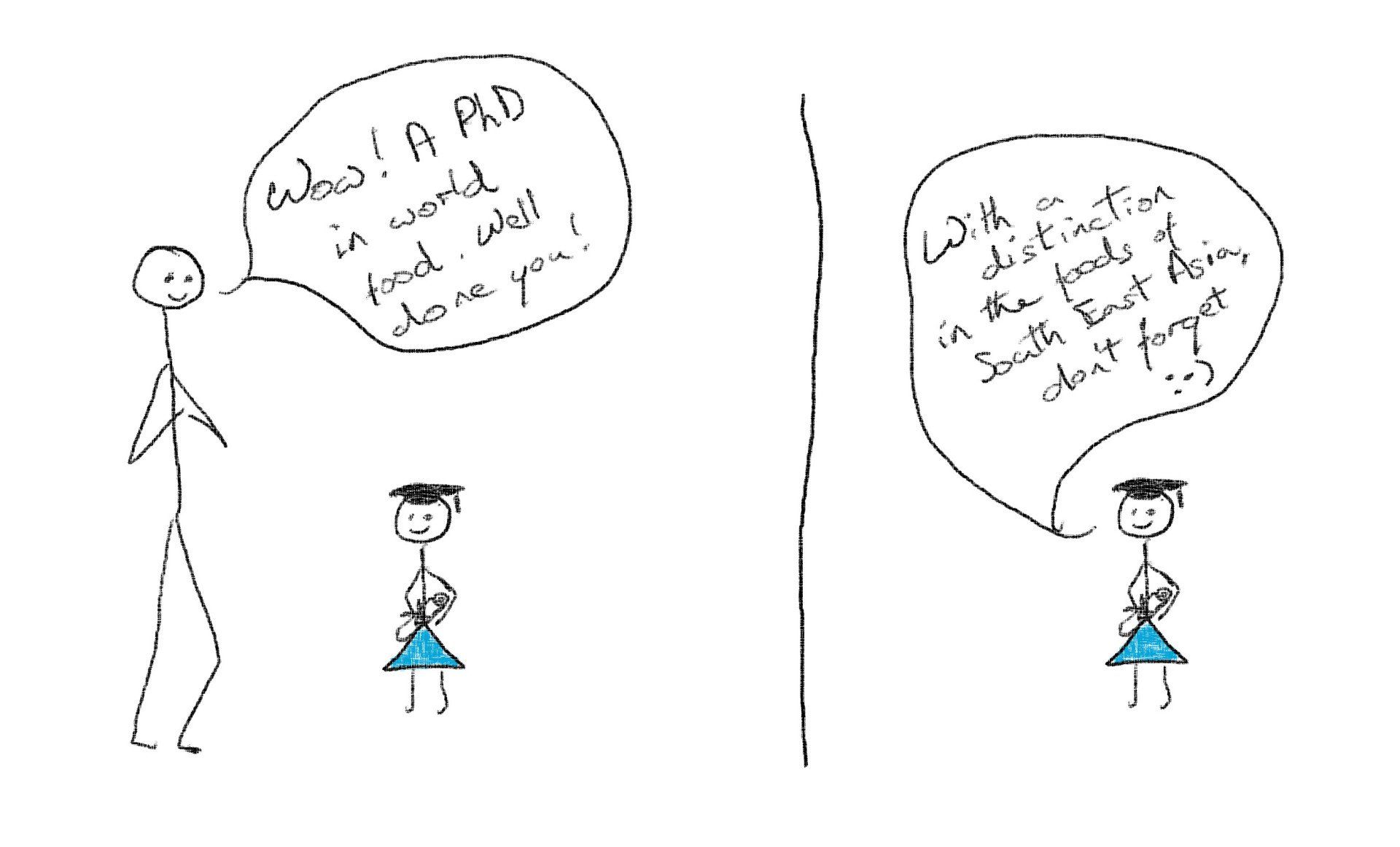
As adults we might love eating Chinese one day and Mexican the next, but do our children really need a PhD in world food at the age of 3?
Throughout history, children would have seen the same restricted range of foods day in and day out, now no two meals need ever be the same.
One day our children will hopefully revel in the exploration of all the different foods our world has to offer.
At first, their priority is to stay alive.
When faced with so much variety they are more likely than ever to restrict themselves to a small safe subset that is highly unlikely to include anything green or leafy!
The Stress This Causes Can Lead To Serious Long Term Consequences.
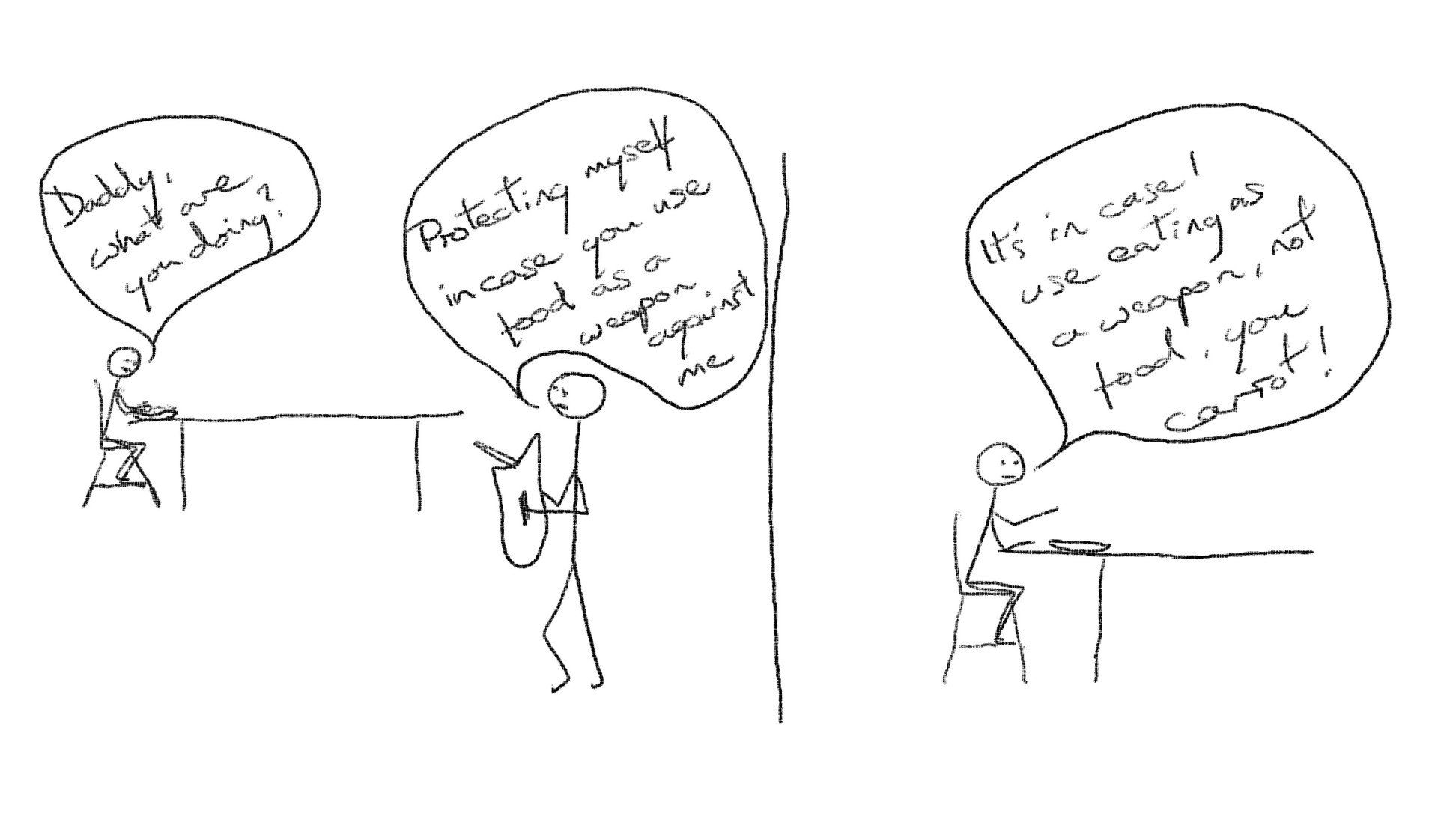
Do we ever pause to think about the long term damage we might be causing when we attempt to persuade, bribe or force our children to eat?
With eating disorders and obesity becoming a major public health issue, we need to understand the long term damage we might be causing.
For most children their bodies will tell them what to eat and how much, if they're allowed to listen to them.
Forcing children to eat what they don't want sets up a range of potential issues for the future, from breaking the link with what there bodies are telling them to handing power to them which they can use against us for years to come.
So, Before We Do Anything Else, We Need To Diffuse The Battles And Relieve The Stress.
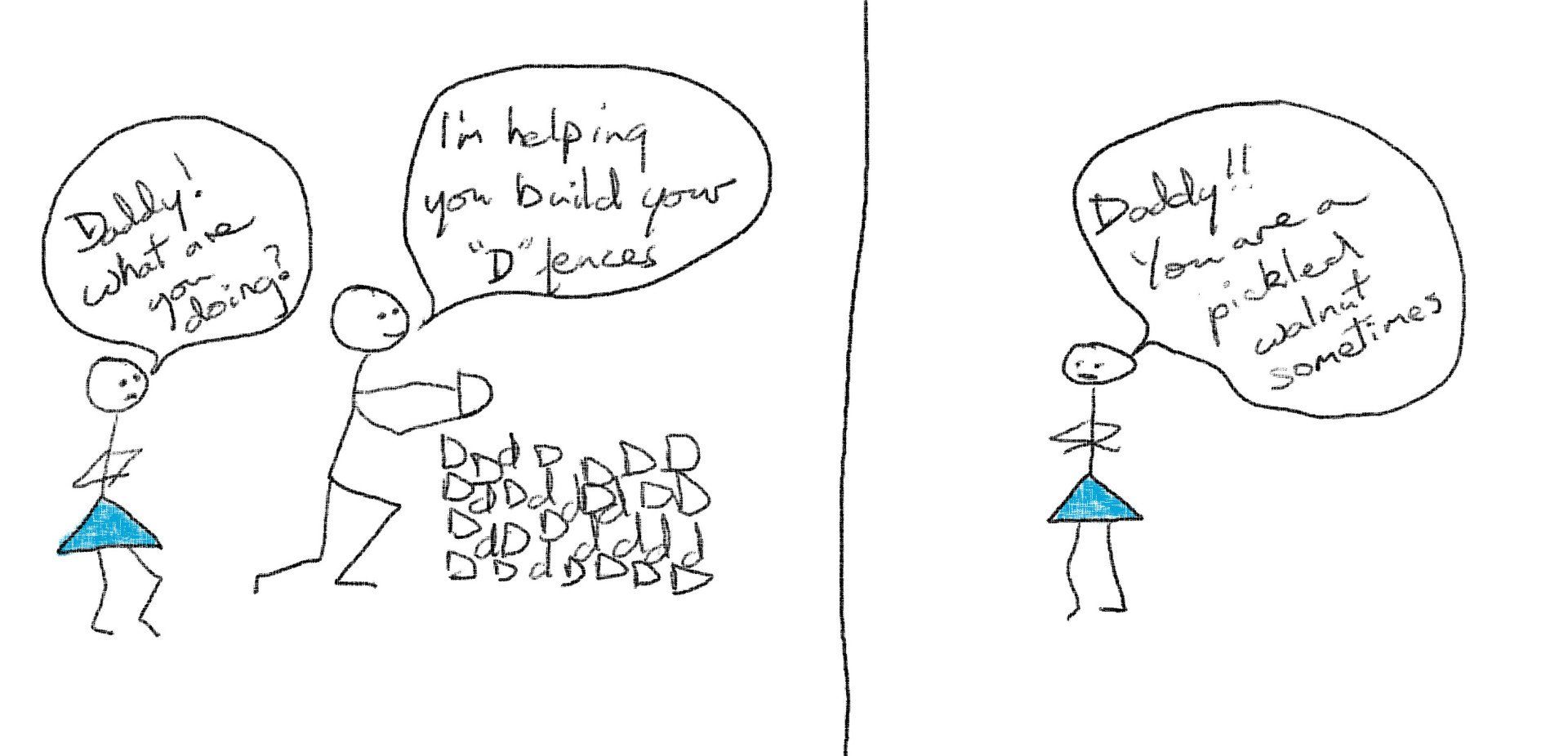
Anxieties around food are a natural consequence of modern family life for both parents and children. They need to be managed carefully.
Defensive mantras are a powerful technique for reducing our children's anxiety around food and, just as importantly, to gradually reduce our own.
Anxiety around food is natural. The stakes are extremely high for both parents and children.
Managing down the anxiety levels is a vital first step in helping our children develop a healthy relationship to food.
Our children must feel in total control of what they put in their own mouths before they will open up to new possibilities.
Can you imagine swapping:
"How do you know if you won't even try it?"
with:
"You don't need to eat anything you don't want."
or
"You don't need to eat anything you don't like."
These are the mantras I used every single day with my daughter for years. They helped her to manage her anxiety levels both at home and at school. Just as importantly, they helped me to manage both my anxiety and my behaviours, while gradually learning to accept the truth of the messages embedded in the mantras.
I still remember the joy I felt when after a few months she first said:
"Daddy, what's that? Can I try some?"
Now she's six I have the luxury of being able to throw in the occasional:
"Try this, I think you might like it."
My right to do so has been hard won and I hope I will never take it for granted.
Then, We Can Provide Our Children With Safe Learning Opportunities.
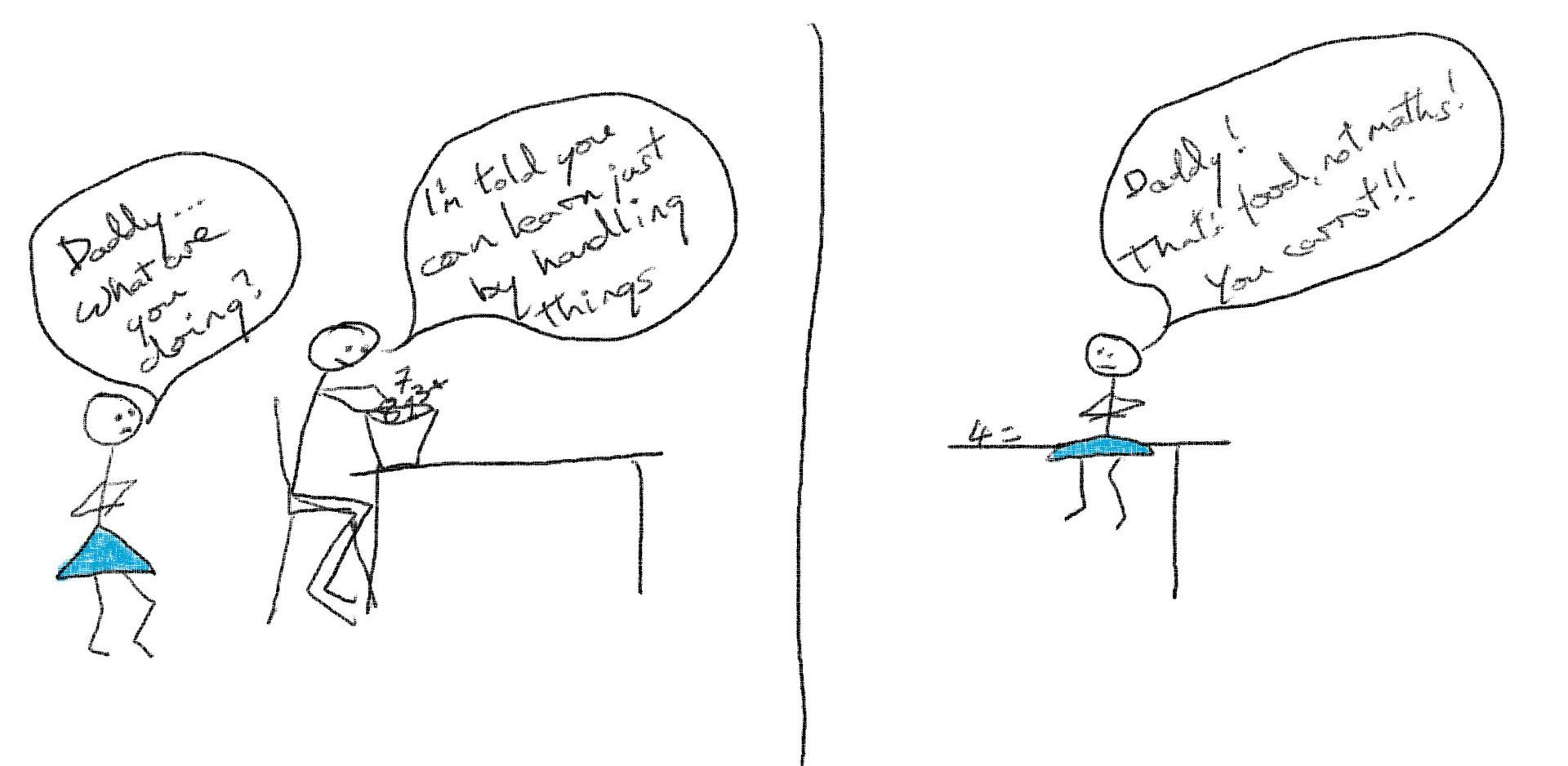
To really help our children learn about food it's helpful to reflect briefly on what it is they're having to learn.
But what exactly is it they have to learn? And, how do they do it if they're not trying the food themselves?
If we are trying to keep ourselves safe there are clearly a number of important things we need to learn:
- What is safe to eat?
- How do I distinguish between the safe food and things that look similar, but maybe aren't safe?
- Which bits do I eat and which bits do I discard?
- What is normal and what is a sign it might be "off"?
Once we've decided something might be safe we have the tricky question of judging what it might feel like in our mouths.. a vital determiner of whether or not we're likely to try something for the first time.
Then, if we get past all those hurdles and actually put a small piece in our mouths a whole new set of learning kicks in.
How do young children learn all these things?
The answer is, the same way they learn anything else, and that's definitely not by being told.
Most Importantly We Need To Eat In Front Of Our Children.
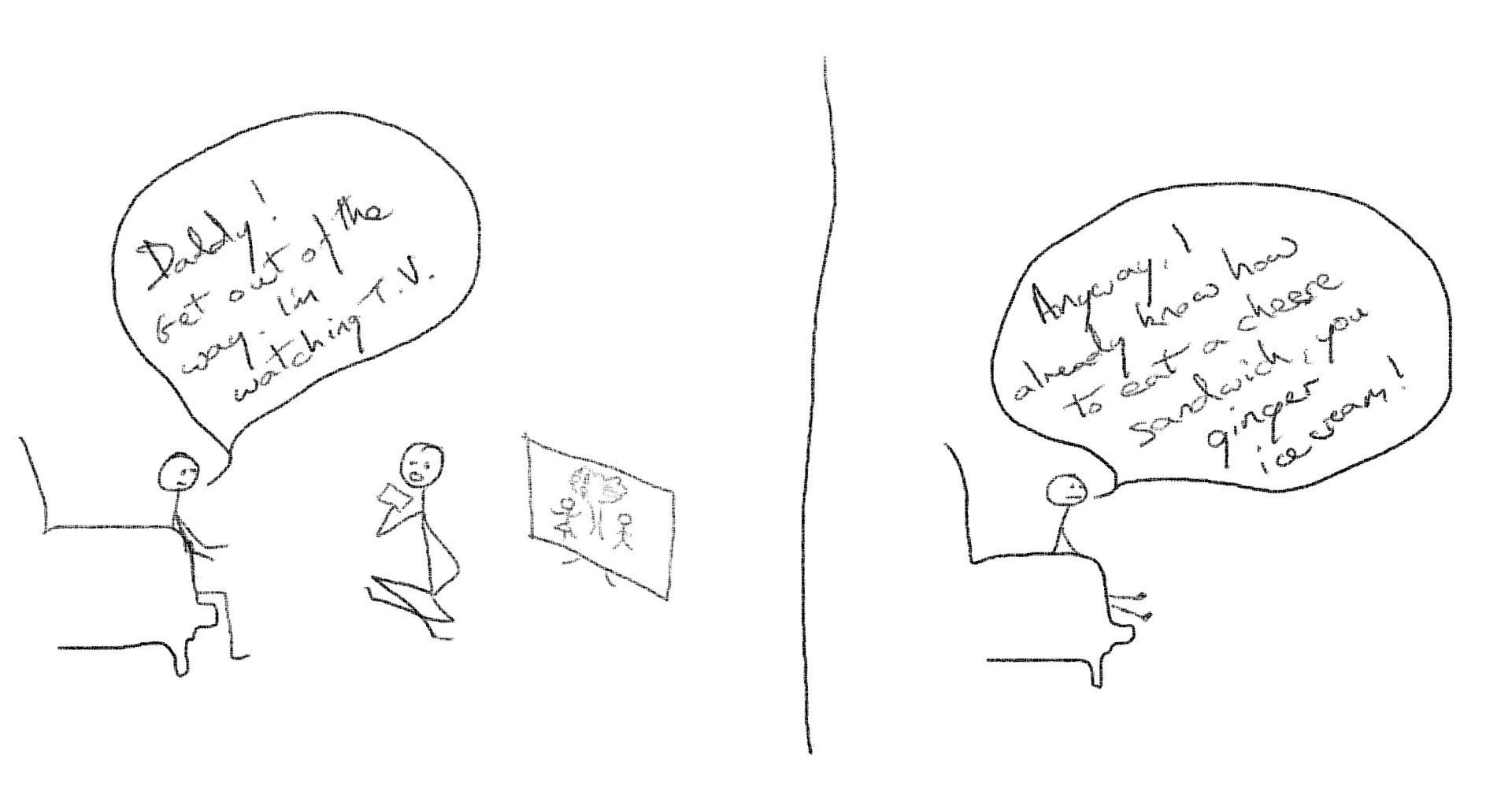
Family mealtimes are the best way to do it, but they're not the only way.
The most important learning children do is when they repeatedly see other people eating the food they are expected to eat too.
There is absolutely no doubt that family mealtimes provide the best learning opportunity for our children.
Even once a week is a big improvement on none at all.
We need to learn to make the absolute most of the family mealtimes we do have and find ways to supplement them on the days we don't.
And, Give Them The Opportunity To Help Us Prepare OUR Food.
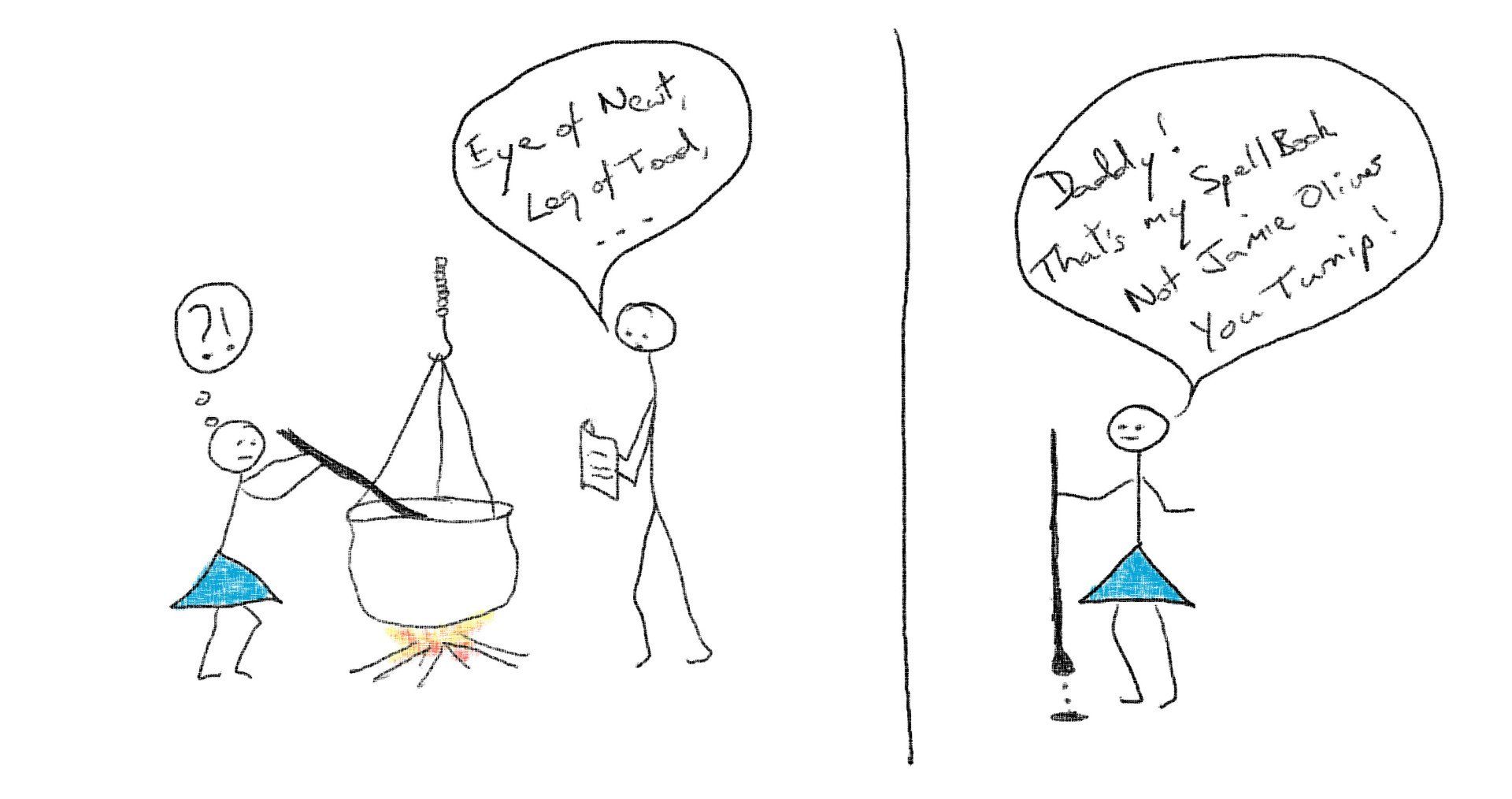
Getting our children involved in preparing their own meals is useful, but the real value comes when they help us prepare ours.
Helping us prepare our meals gives children an in depth understanding of the food they are, or will be, expected to eat too.
It seems to be the norm these days that adults eat separately from the kids and that often means when they're out of the house, or in bed.
Certainly that's the case for us and always has been. We cling to that moment of time to ourselves even though we know it would be better to eat as a family.
To help make up for this I used to involve my daughter in the preparation of our evening meal as much as I could.
We Can Foster Curiosity By Making Food A Thing Of Wonder.
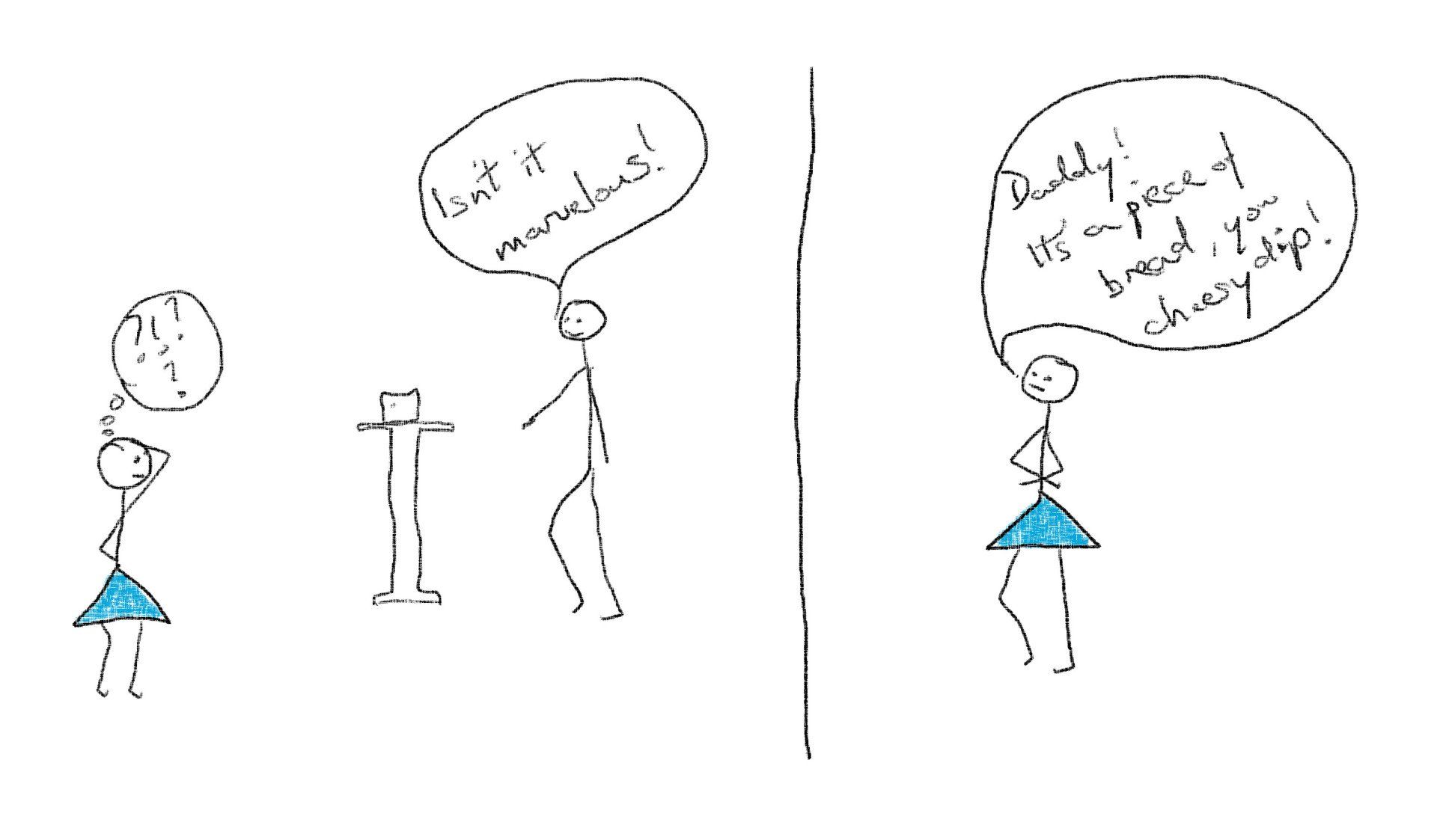
We should never "celebrate" eating per se, but that mustn't stop us celebrating the wonder of food.
Hot sausage and mustard, cold jelly and custard, pease pudding and saveloy. Oh food! Magical food! Wonderful food! Marvellous food!
My apologies to anyone who doesn't know the opening sequence from the film 'Oliver'! It is a wonderful celebration of the joy of food, sung by a group of hungry Victorian workhouse boys. They are fed each day on a meagre ration of watery gruel, while the adults sit and feast from overflowing dishes of delicious looking food.
It reminds me, in a way, of watching children in restaurants tucking into a safe bland option from the kids menu, while the adults are each enjoying a delicious looking plate of food from the main menu. The difference, of course, is that these kids generally show no curiosity for what the adults are eating and certainly seem to have no desire to try any.
What a shame.
It is certainly true that we should never celebrate the act of eating. We don't applaud an empty plate, or eating all the greens, or any other aspect of eating. Eating should be as natural a part of every day life as brushing our teeth or walking down the road to school. We should eat when we're hungry and stop when we're not.
But, that should not stop us from fostering a love of food, and with it, a curiosity for new experiences that help encourage children to make their own choice to try something new.
And Make Sure They're Hungry At Mealtimes By Avoiding Hunger Games.
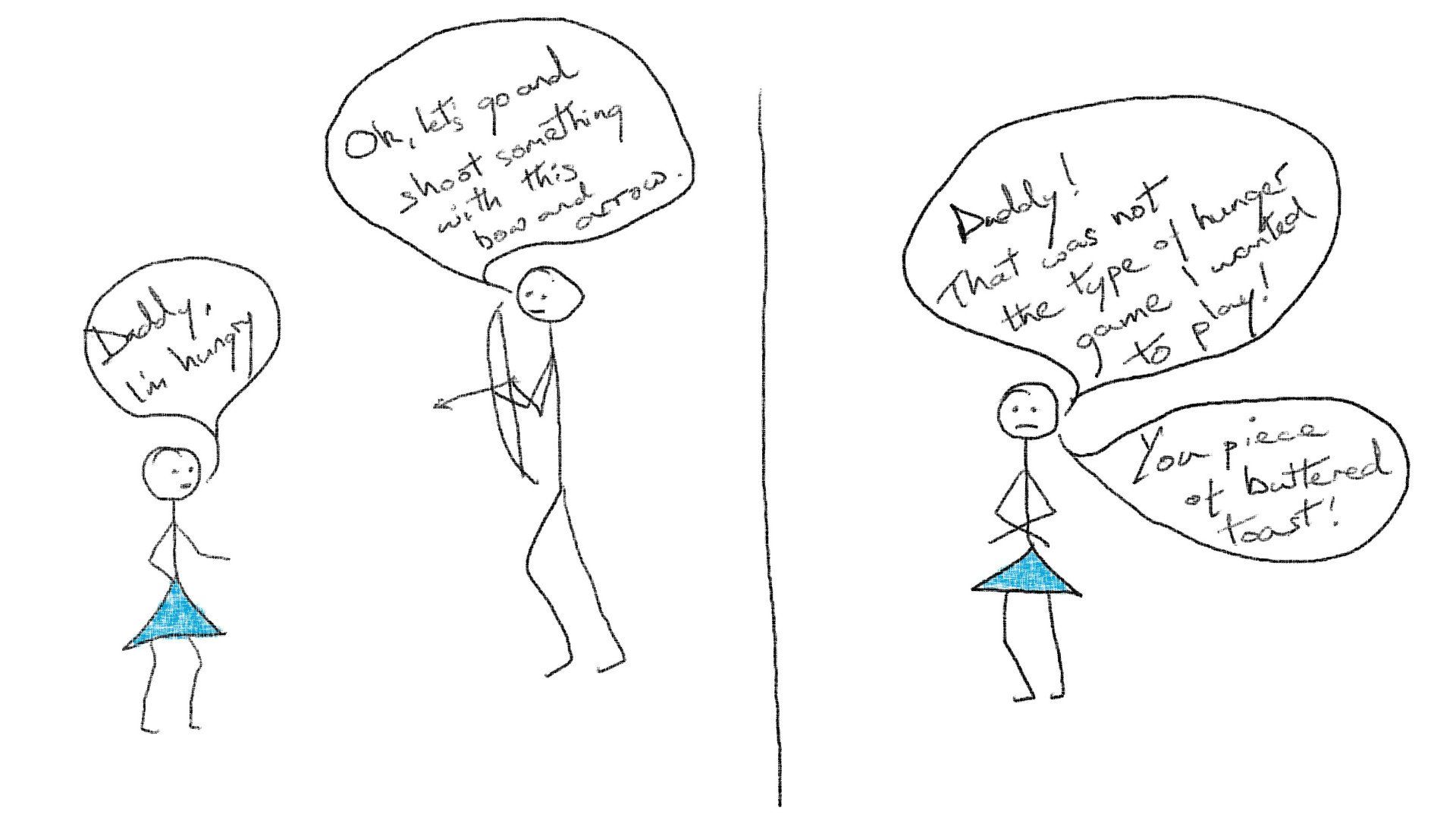
Children are master manipulators. They will use the 'hunger' card to get the food they want and avoid being hungry at mealtimes.
Snacks are invariably safe, often sweet, rarely healthy and, for many children, preferable to facing the challenge of a proper meal.
One of my golden rules that I stick to with very few exceptions, is no eating outside of designated meal or snack times. Once you start, it's a very slippery slope indeed.
Children LOVE snacks! Why?... because they are never given a plate of cabbage for a snack, that's why!
As parents we have a fear of our children being hungry, or more to the point, of the behavioural consequences associated with it.
Children know this and play on it to get the food they want, when they want it.
In doing so they can avoid being hungry at the most awkward of times... mealtimes.
If we want our children to eat healthily then we need to help manage their blood sugar levels in a way that means they are hungry at mealtimes, or designated snack times, not in between.
Finally, We Can Sit Back And Wonder As Spring Comes, And The Grass Grows, By Itself.
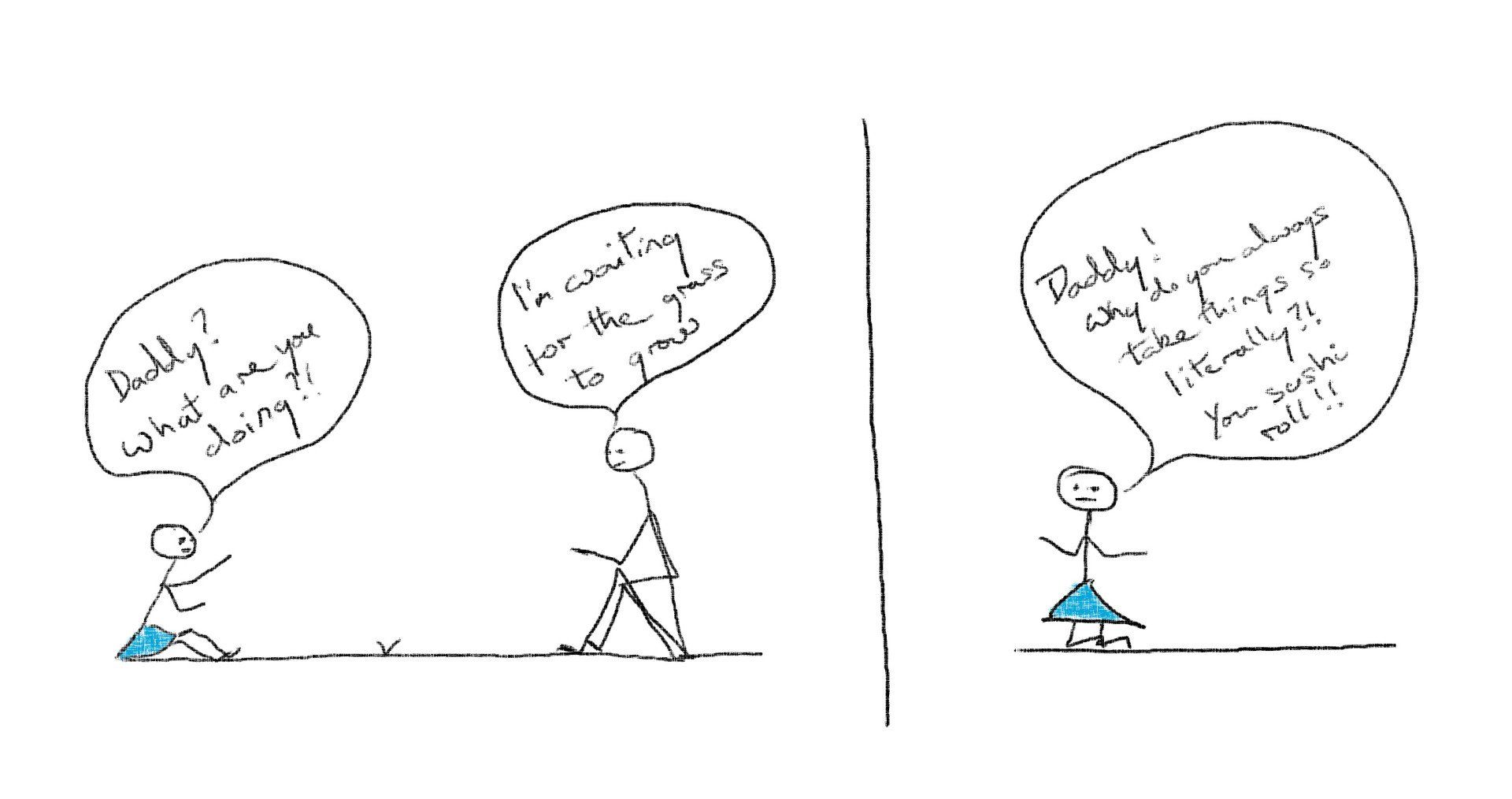
It might take 6 months before the first green shoots appear, but they will come, and if we don't make a big deal of it, more will follow.
It is natural for a young child to be wary about food, but it is also natural for them to love food too. Once the anxiety has diminished the love will slowly follow.
I still have folders from my school days, some 40 years ago, with my favourite Haiku written on them.
"Sitting quietly, doing nothing. Spring comes, and the grass grows, by itself."
The commas are of vital significance!
I think in those days it was the sense of quiet reflection that appealed so much, these days it represents something else. An understanding that living systems rarely flourish under our direct control (in fact the same is true of many artificial systems, but that's a whole other story).
We can do our best to set up the right environment, but we can no more make our children eat something they don't want, or feel safe with, than we can force the grass to grow.
When the conditions and the time are right, it will happen. The only difference is that the onset of Spring is more or less predictable, whereas our children opening up to try new foods isn't.
What we have to focus on while we're waiting is that we keep the conditions in place to make it happen and that we don't trample all over any new shoots that first appear.
If You Are Just Starting Out It Helps To Understand The Three Phases Of Learning.

Learn how to optimise your approach to the 3 stages of childhood eating
If you are lucky enough to be starting out with a new baby you can learn to make the most of the "Yes" phase and avoid the "No" battles altogether.
For everyone else, the approach depends on which phase they you in, "Yes", "No", or "Maybe".
Before starting, it's worth reflecting on what a healthy relationship to food actually is.
The "Yes" Phase - That brief golden period between the start of weaning and becoming self mobile.
As a parent it seems we can do no wrong, whatever we put in front of our children is picked up, smeared all over their faces and thrown on the floor.. who knows, they may even eat a little!
But who cares anyway, they are still getting most of their nutrients and energy from milk.
At this stage our children are learning naturally about food.
We need to make the most of it because it doesn't last long.
The "No" Phase - The agonising period from when they become self-mobile to when they are old enough to reason about food.
How deep this phase goes and exactly how long it lasts is largely down to how well we did in the "Yes" phase, how much control our children feel they have over what goes in their mouths and how much chance they have to learn.
Remember, we don't want them putting just any green leafy thing in their mouths and swallowing it, so let's not get too stressed if cabbage isn't yet their favourite food.
The "Maybe" Phase - The period where reason begins to play a role in food choice and where children may open up to new possibilities.
The "No" phase is pure instinct, but at some stage the ability to reason about food kicks in. At this stage children may be prepared to try things they don't feel completely sure about.
How open our children are at this stage depends to some extent on their own personalities, but it is hugely influenced by how good a job we've done in both the "Yes" phase and the "No" phase.
When they do gradually start to open up it is important not to pounce.
Stay cool. After all, eating should be as natural a part of day to day life as walking down the road to school.
Children do not refuse to eat things just to wind us up.
Unless we teach them to.
Created 12/03/2019
Last Updated 11/06/2019




